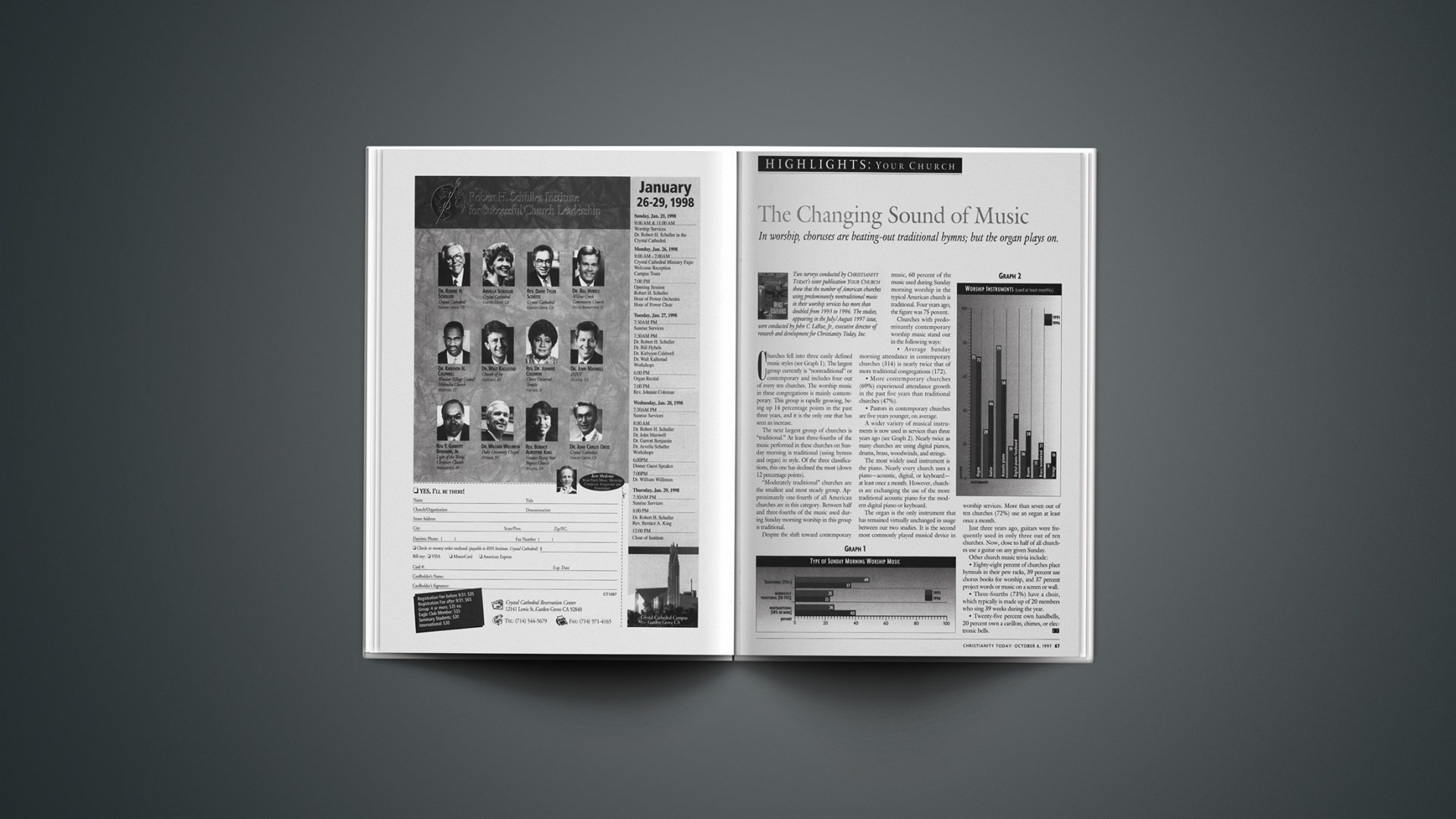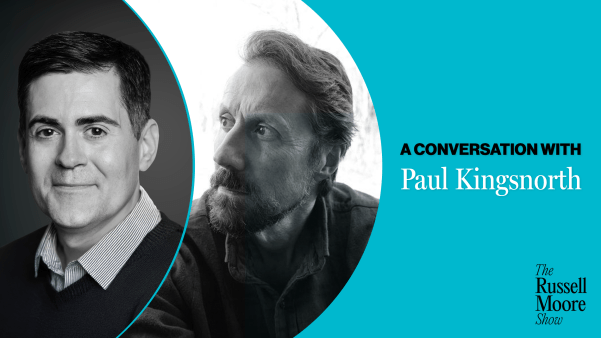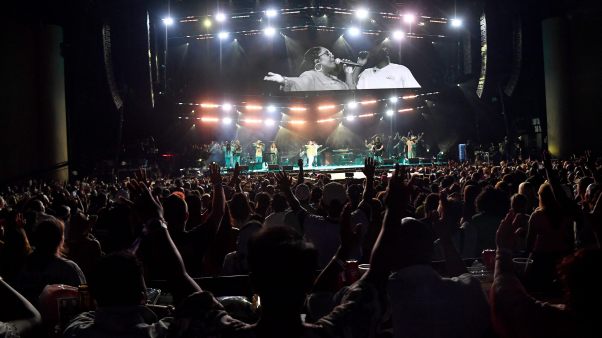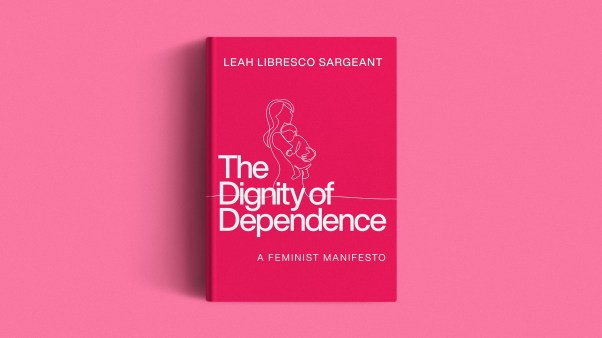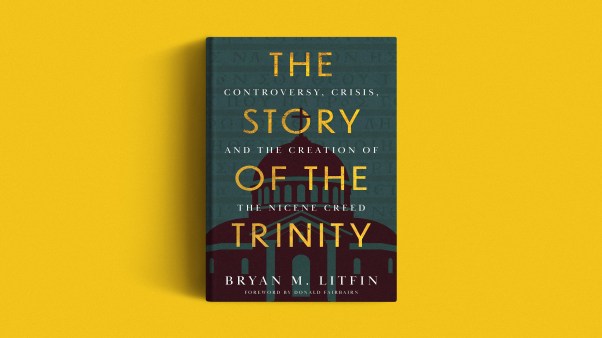Two surveys conducted by Christianity Today‘s sister publication Your Church show that the number of American churches using predominantly nontraditional music in their worship services has more than doubled from 1993 to 1996. The studies, appearing in the July/August 1997 issue, were conducted by John C. LaRue, Jr., executive director of research and development for Christianity Today International.
Churches fell into three easily defined music styles (see Graph 1). The largest group currently is “nontraditional” or contemporary and includes four out of every ten churches. The worship music in these congregations is mainly contemporary. This group is rapidly growing, being up 14 percentage points in the past three years, and it is the only one that has seen an increase.
The next largest group of churches is “traditional.” At least three-fourths of the music performed in these churches on Sunday morning is traditional (using hymns and organ) in style. Of the three classifications, this one has declined the most (down 12 percentage points).
“Moderately traditional” churches are the smallest and most steady group. Approximately one-fourth of all American churches are in this category. Between half and three-fourths of the music used during Sunday morning worship in this group is traditional.
Despite the shift toward contemporary music, 60 percent of the music used during Sunday morning worship in the typical American church is traditional. Four years ago, the figure was 75 percent.
Churches with predominantly contemporary worship music stand out in the following ways:
—Average Sunday morning attendance in contemporary churches (314) is nearly twice that of more traditional congregations (172).
—More contemporary churches (69%) experienced attendance growth in the past five years than traditional churches (47%).
—Pastors in contemporary churches are five years younger, on average.
A wider variety of musical instruments is now used in services than three years ago (see Graph 2). Nearly twice as many churches are using digital pianos, drums, brass, woodwinds, and strings.
The most widely used instrument is the piano. Nearly every church uses a piano—acoustic, digital, or keyboard— at least once a month. However, churches are exchanging the use of the more traditional acoustic piano for the modern digital piano or keyboard.
The organ is the only instrument that has remained virtually unchanged in usage between our two studies. It is the second most commonly played musical device in worship services. More than seven out of ten churches (72%) use an organ at least once a month.
Just three years ago, guitars were frequently used in only three out of ten churches. Now, close to half of all churches use a guitar on any given Sunday.
Other church music trivia include:
—Eighty-eight percent of churches place hymnals in their pew racks, 39 percent use chorus books for worship, and 37 percent project words or music on a screen or wall.
—Three-fourths (73%) have a choir, which typically is made up of 20 members who sing 39 weeks during the year.
—Twenty-five percent own handbells, 20 percent own a carillon, chimes, or electronic bells.
Copyright © 1997 Christianity Today. Click for reprint information.

